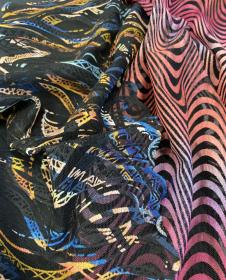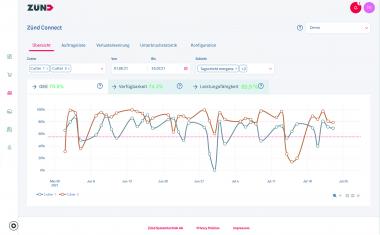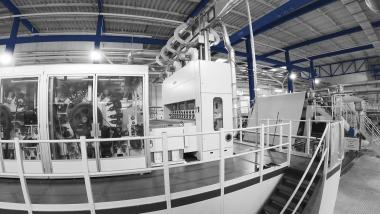Rieter Holding AG: Change in the Board of Directors
- This E. Schneider will not stand for re-election at the 2022 Annual General Meeting
- Sarah Kreienbühl and Daniel Grieder proposed for election as new members of the Board of Directors
This E. Schneider has informed the Board of Directors that, after 13 years of membership, he will not stand for re-election as a member of the Board of Directors and Vice Chairman of Rieter Holding AG at the next Annual General Meeting on April 7, 2022.
The Board of Directors of Rieter Holding AG will propose Sarah Kreienbühl and Daniel Grieder for election to the Board of Directors at the Annual General Meeting on April 7, 2022.
Sarah Kreienbühl has been a member of the Executive Board of the Federation of Migros Cooperatives since 2018 and heads among other things Human Resources and Communications of the Migros Group. Before that, she spent 14 years at Sonova as Group VP Corporate Human Resources, where she was also responsible for Corporate Communications from 2012. Sarah Kreienbühl holds both the Swiss and French citizenship and graduated from the University of Zurich with a degree in psychology. With her expertise and extensive leadership experience, she will be able to make an important contribution to Rieter’s human resources policy as a member of the Board of Directors.
Daniel Grieder has been CEO of HUGO BOSS AG, based in Metzingen (Germany), since June 2021. He has been working successfully in the textile industry for more than 35 years: initially from 1985 to 2004 as an independent entrepreneur with his own sales agency, which worked for Tommy Hilfiger from 1997. He joined Tommy Hilfiger directly in 2004 and took on additional roles for PVH from 2010 to 2020. He most recently held the positions of Global CEO Tommy Hilfiger and CEO PVH Europe. Daniel Grieder is a Swiss citizen and studied at the Zurich School of Economics and Business Administration.
Rieter Holding AG






















